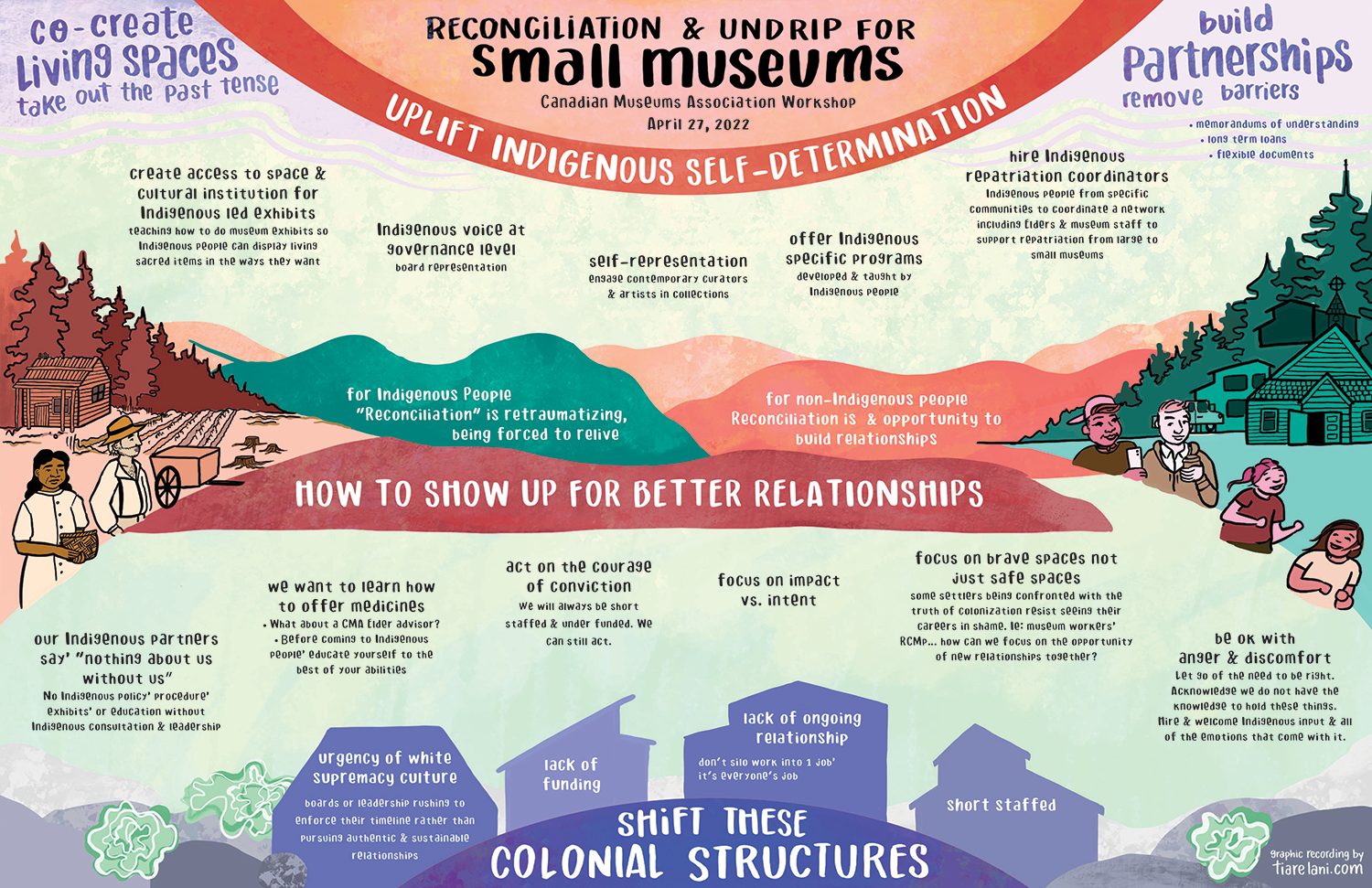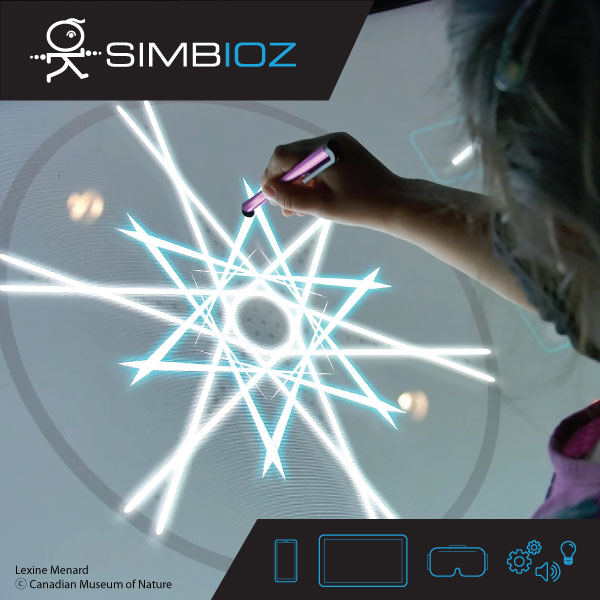Reconciliation Update
Stephanie Danyluk
"Reconciliation is a gift to museums."
These words, spoken by Yukon First Nation Heritage Advisor Nyla Klugie-Migwans at the CMA Yukon Heritage roundtable in April 2022, resonate through the work of the CMA’s Reconciliation Program as we move into the final stages of completing the report, recommendations, and toolkit in response to TRC Call to Action #67 for release in September 2022.
Over the past few months, we have completed the engagement and information gathering phase, capping off our listening circles and roundtables with Lennox Island First Nation, Avataq Cultural Institute, and Heritage Yukon, conducting interviews with key Indigenous museum and heritage professionals, and reviewing written submissions provided by museums across the country.

Visual notes from the Small Museums workshop held during the CMA 2022 National Conference. Artwork by Tiaré Lani.
This information has been assembled into the draft report and recommendations, which is currently under review by our Reconciliation Council. In addition to the oversight provided by our Reconciliation Council, we brought together experts to form a series of working groups on areas including Indigenous-led spaces, Repatriation and Small Museums. We also held a series of workshops with small-museum professionals to hear from them on their successes and obstacles in implementing the TRC Calls to Action and UNDRIP. The input from these representatives has informed the development of the CMA’s toolkit for Reconciliation and UNDRIP for Small Museums.
The report takes into consideration the state of museums vis-à-vis UNDRIP in four key categories: Repatriation, Governance, Operations, and Engagement. It conveys the standards in these areas based on our engagements, policy research, and information collection. The report then reviews the “Turning the Page” 1992 Task Force Report in these areas to assess where changes has occurred and where improvement is still required.
Our toolkits will assist museums to achieve the standards recommended in the report. In addition to the Small Museums toolkit mentioned above, you will also find toolkits on Engagement, Repatriation, and Indigenous-led spaces. ranging from guidance on decolonizing your repatriation policy to key considerations when approaching Indigenous communities with engagement requests.
The above words of Nyla Klugie-Migwans must be taken with the understanding that the work of reconciliation falls to settlers. As conveyed by the CMA Reconciliation Council at our most recent meeting, it is not up to Indigenous people to reconcile, but to speak truth to power. It falls to settlers to reconcile themselves to the true history of where institutions like museums have caused harm and address this in ways identified by Indigenous peoples.
Through our engagements, we have heard the earnest desire from settler institutions to foster reconciliation and implement UNDRIP. From Indigenous professionals, we have heard that this must be done in a way that breaks down systemic barriers to effect actual change. It is our hope that the report, recommendations, and toolkit centres the Indigenous experience in museums to convey how settlers can assist in dismantling the parts of the museums that continue to perpetuate colonial harm.
M
Stephanie Danyluk is the Reconciliation Manager with the CMA, supporting the work to respond to TRC #67 and promote Indigenous self-determination in museum and heritage spaces.
